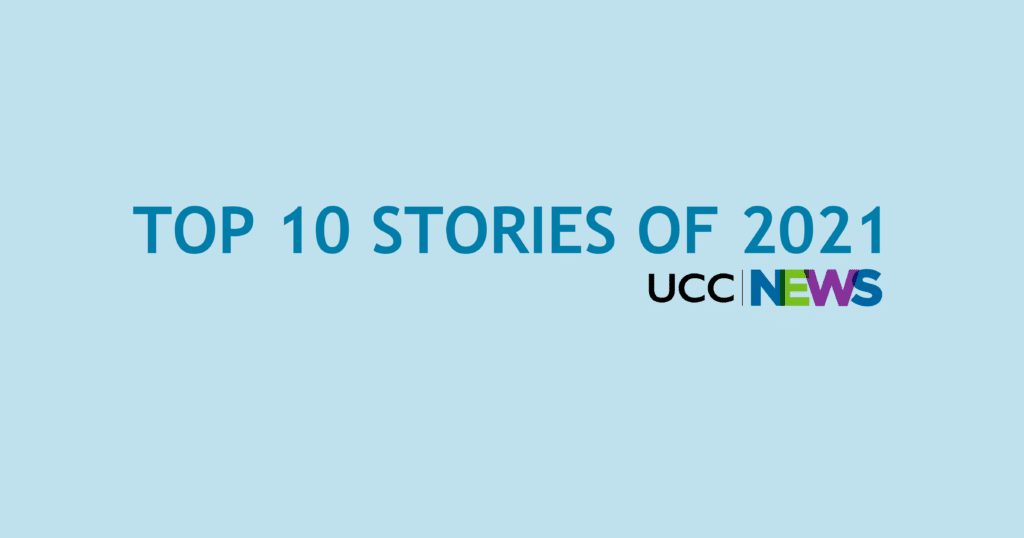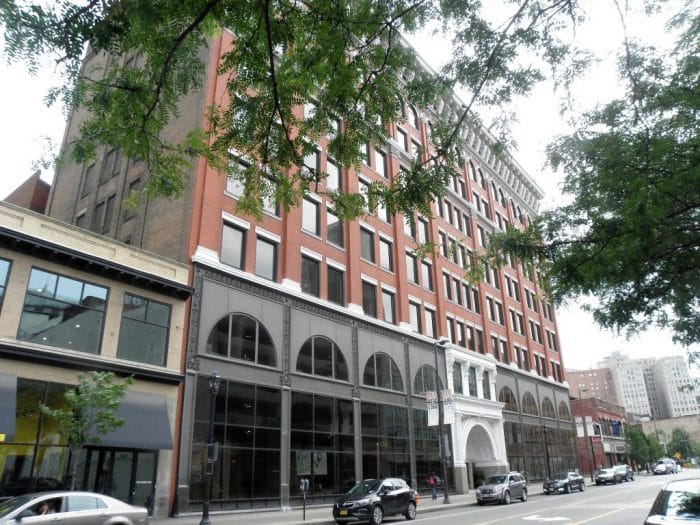Fighting white supremacy is year’s top UCC news story
The battle against racism, white supremacy and white nationalism tops this year’s United Church of Christ news review.
It started with the Jan. 6 insurrection at the U.S. Capitol and church statements condemning its white nationalist roots. It ended with the recruitment of more anti-racist trainees. In between, there were ups and downs in courtrooms. There were actions ranging from anti-racist resolutions to scholarships to legislative advocacy. The racial-justice aspects of other crises — including COVID and the climate crisis — were called out. And a new movement was announced. All of this, and more, brought that topic to the top of this 2021 year in review, as assessed, unscientifically, by the staff of UCC News.
That racial-justice theme — and nine other prominent topics covered by UCC News in 2021 — are listed below. They count down as follows:
- 10: Church House sale
- 9: Medical debt relief
- 8: Standing with Indigenous people
- 7: Gun violence
- 6: First-ever virtual General Synod
- 5: Severe natural disasters
- 4: COVID-19
- 3: Immigration, refugees, asylum seekers
- 2: Earth’s climate
- 1: Anti-racism
A few examples follow each topic heading.
And as 2021 closes, we on the news staff of the UCC national setting wish you enduring Christmas hope, dear readers — with prayers for courage in the struggle for justice and peace.
No. 10: Church House for sale
The UCC put its Cleveland office building up for sale and prepared to move national staffers to leased space.
After months of study requested by the UCC Board, the “for sale” listing and move were announced in September. The UCC bought the 700 Prospect Avenue building in 1989 and moved its headquarters there from New York City in 1990. The church now needs less space than it did then. That’s both because of new remote and hybrid work styles that came in with COVID-19 and because the Covenanted Ministries’ staff is a third as large as it was in the 1990s. Originally planned for January, the move to the church’s new office space at 1300 E. 9th Street is now set for sometime in the first quarter of 2022.
No. 9: Medical debt relief
A two-year UCC campaign surpassed $70 million in relief for people who owe medical bills.
Debt buys in 2021 were announced:
- In Delaware, Maryland, New Jersey and West Virginia in June, funded by eight congregations in and around Washington, D.C.
- In Florida, Louisiana and Texas in July, with gifts from First Congregational UCC in Lake Worth, Fla., and 2020 Giving Tuesday donors.
- In Arizona in October, thanks to 11 churches in the Southwest Conference.
General Synod also celebrated the effort, which had started in the Chicago area in 2019. Throughout the two years, the church has bought debt for pennies on the dollar, working with RIP Medical Debt, a New York nonprofit. Funding came from members, local churches, Conferences, partner agencies, Giving Tuesday donors and national ministries of the UCC. More buys are in the offing as the campaign — coordinated by Justice and Local Church Ministries — draws to a scheduled close at the end of 2021. Local churches and other bodies are free to continue working directly with RIP.
No. 8: Standing with Indigenous people
Significant name changes arrived, and struggles to protect sacred water and land continued.
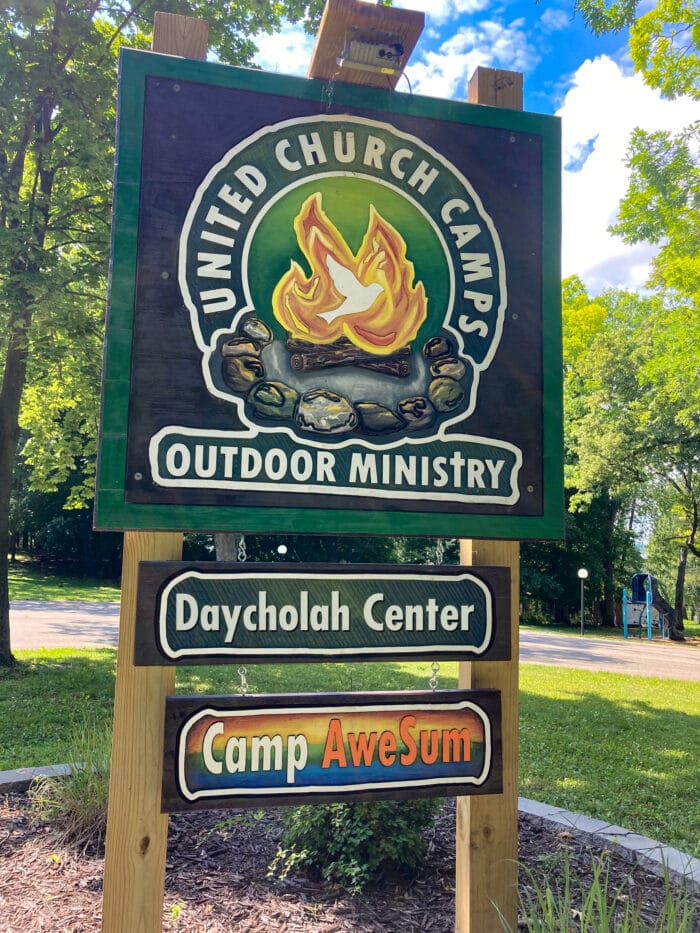
Past General Synod and Conference resolutions — decrying the negative stereotyping of Indigenous people and the medieval Doctrine of Discovery — bore new kinds of fruit in 2021. Cleveland’s Major League Baseball team, which had already abandoned its red-faced logo in 2019, changed its name to Guardians. And after a process of study and dialogue with the Ho-Cak (Ho-Chunk) people, a Wisconsin Conference camp formerly known as Pilgrim Center rededicated itself on Indigenous People’s Day as Daycholah Center. It’s the Ho-Cak name for the lake where the camp is located. Meantime, church people continued to join Indigenous leaders in their opposition to putting pipelines — such as Line 3 in Minnesota — through sacred lands and life-giving bodies of water. And allies expressed lament and outrage at disturbing revelations of 20th-century burials of Indigenous people by religious schools in Canada and the U.S.
No. 7: Gun violence
As mass shootings in the U.S. killed more people, local churches took action.
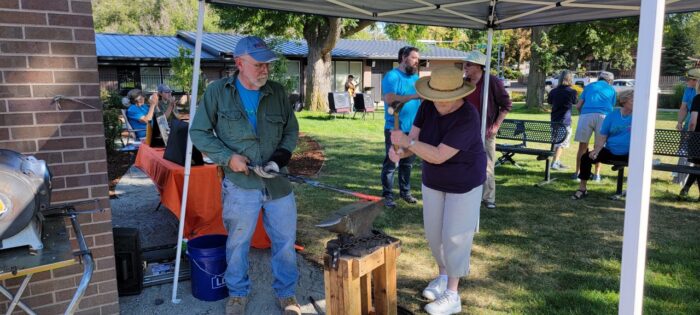
Local churches and Conferences mourned and responded to school and workplace shootings such as those in March in Atlanta and in Boulder, Colo., in April in Indianapolis, and in November in Oxford, Mich. In addition to pastoral responses of many kinds, they also led creative actions and witnesses. A pastor walked from Chicago to the nation’s capital to protest the U.S. “violence pandemic.” Also headed for an anti-violence witness in D.C. was a display of “soul boxes” created by churches in Portland, Ore. And Colorado churches invited people to turn in their guns — and recycled them into gardening tools.
No. 6: First-ever virtual General Synod
For the first time in UCC history, the biennial churchwide gathering and business meeting took place entirely online.
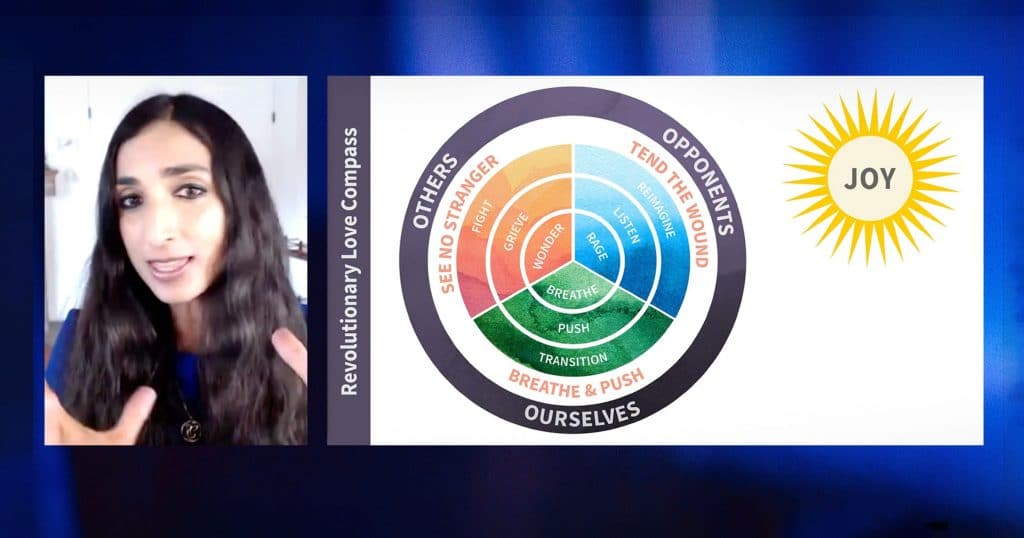
Once upon a time, the 33rd General Synod was to be held in Kansas City, Mo. But a decision soon after the COVID-19 outbreak of 2020 moved it online. While delegates and visitors missed the in-person fun of meals, exhibits and bumping into friends in convention-center concourses, they were able to get a remarkable amount of Synod content over a coordinated set of virtual platforms. From Hawaii to Maine — and from overseas — people attended workshops, lectures and plenaries from their home computers. The Synod and its related events stretched out over 12 days instead of the usual five to accommodate people from multiple time zones on any given day. Worship services demonstrated the power and possibilities of church-as-multimedia. Business — including speak-outs, debates, amendments and more — took place on a special platform that everyone could view but where only delegates could speak and vote. News coverage of resolutions — and all Synod activities — can be found here. Minutes are here.
No. 5: Severe natural disasters
The demand for disaster relief and recovery increased as wildfires raged more frequently and hurricanes and floods grew more severe.
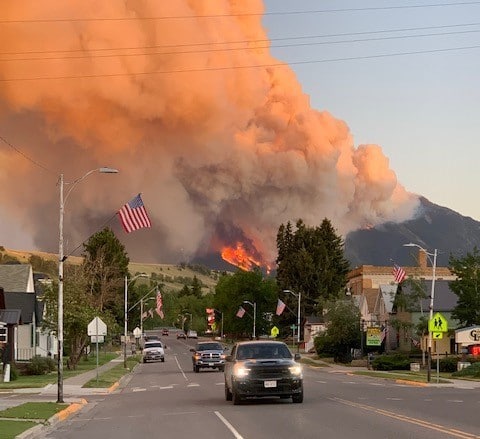
Unusual storms varied from a spring freeze in Texas to a deadly fall tornado that tore through a record 200-plus miles of Kentucky and neighboring states. Wildfires, especially in the West, moved closer to becoming a year-round thing. Hurricane Ida and other storms brought destruction to communities and churches the South and Northeast. In response to these — as well as to disasters in other countries, such as a massive August earthquake and tropical storm in Haiti — the Global H.O.P.E. team of Wider Church Ministries offered both immediate dollars and long-term recovery assistance, including from volunteers. Local churches pitched in, too — housing and helping fire refugees and hosting flood-relief efforts, for example. Claims coverage, disaster-preparedness resources and relief dollars came from such agencies as the Insurance Board and the Retirement Housing Foundation.
No. 4: COVID-19
For a second calendar year, the church and the world struggled with — and adapted to — a virus.
With caution and by degrees, many churches returned to in-person gatherings after a year or more of pandemic-induced isolation. And, as a UCC study confirmed, they brought something with them: a new comfort with online meetings and worship. Many said they would go “hybrid” permanently, with in-person services live-streamed as well — or at least video-recorded for later viewing. A Kansas church even danced its way back to in-person worship. Churches, Conferences and national ministries urged their communities and staffs to accept vaccines, turned a camp into COVID-safe housing, collected and gave out food safely, offered drive-in worship services, adapted their annual meetings, cared for the sick and dying, and offered support to stressed clergy. COVID’s economic- and racial-justice aspects, and its global impacts, were also addressed.
No. 3: Immigration, refugees, asylum seekers
Churches welcomed the stranger and worked for just U.S. policies, even as freedom came for many long in sanctuary.
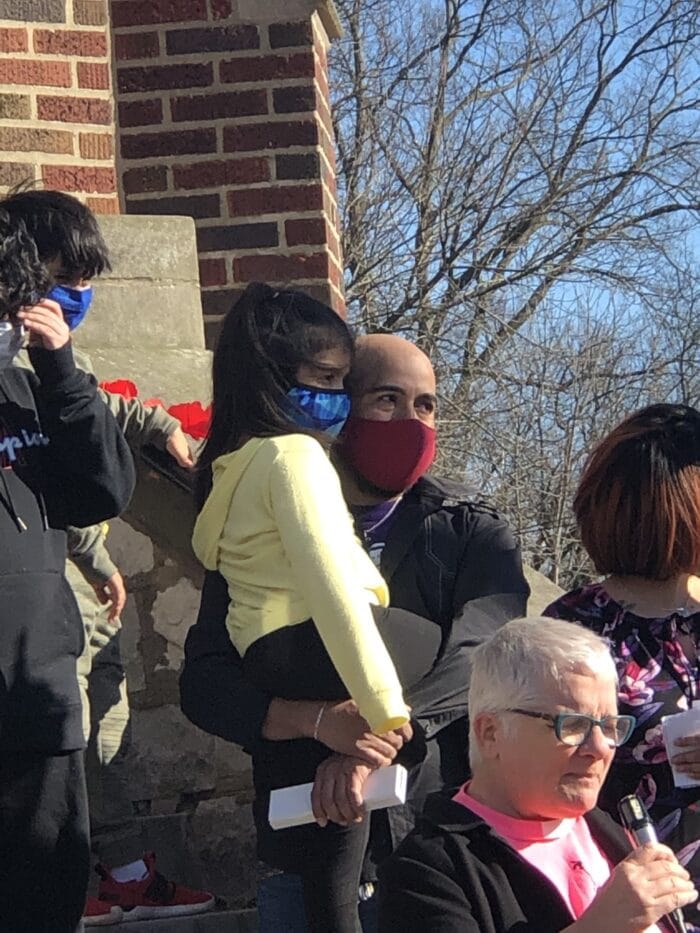
With a new U.S. administration in place, policy changes altered some parts of the immigration landscape. One of these meant that people living in UCC churches as part of the sanctuary movement could freely return to community life. Among them were people and families in Maplewood, Mo., Mo., Kalamazoo, Mich., Raleigh, N.C., and Amherst, Mass. Meantime — locally and beyond — the UCC pressed the U.S. government to reunite families, set generous refugee goals and treat Haitian immigrants fairly. They adapted their border ministries to changing needs. They continued their acts of charity, such as funding beds for refugee children and offering support to people who left Afghanistan as the U.S. ended its decades-long military presence there.
No. 2: Earth’s climate
Carbon emissions continued to choke God’s created earth. Church, nonprofit and youth activists said climate efforts must speed up to save lives.
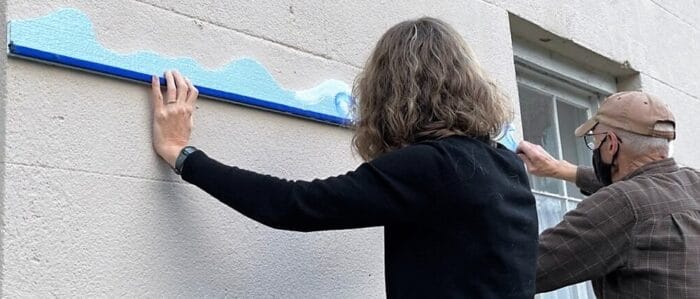
The UCC celebrated 30 years since a landmark national conference, part of the environmental justice movement it helped start. It continued to receive awards for its climate-justice work — local and national in scope. A Giving Tuesday campaign raised some $65,000 for creation care. The Pension Boards, the Cornerstone Fund and United Church Funds all introduced and/or promoted earth-conscious investments and financing. Churches continued to explore ways to sound the climate alarm and do something about it. These ranged from legislative action, to processing grief, to marking a line on a church wall to show how high the sea is about to rise. And in November, world leaders gathered — urgently — to try to keep earth’s temperature from warming more than 1.5 degrees Celsius beyond pre-industrial levels.
No. 1: Anti-racism
Reactions to a white nationalist insurrection at the U.S. Capitol — an attempt to overturn the 2020 presidential election — kicked off a year of continued church push-back against racism and white supremacy.
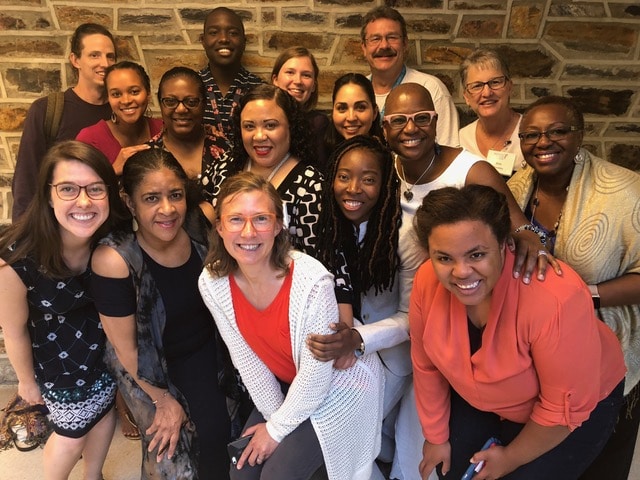
Reaction from the religious community was swift after supporters of then-President Donald Trump stormed the U.S. Capitol on Jan. 6, trying to overturn the election he had lost weeks earlier. UCC and other leaders named the threat this represented to democracy and called out its roots in “Christian nationalism.” It all kicked off a year that continued a racial reckoning in the U.S. following the 2020 deaths of George Floyd and other Black people at the hands of police and vigilantes. UCC people lauded the convictions of the killers of Floyd and Ahmaud Arbery, the removal of Confederate monuments and the embrace by German partners of two UCC anti-racism learning programs. They lamented the acquittal of a white killer in Wisconsin, declared racism a public health crisis, decried historic and current violence against Black bodies, and pushed for reparations. They expanded resources to help churches become anti-racist, including the launch of a “Join the Movement” campaign, picking up where the years-long “3 Great Loves” initiative left off. A task force formed by the UCC Board also took first steps in an assessment of the UCC’s own “racial equity, diversity and inclusion.”
Related News
A Prophetic Call for Justice and Peace in Palestine
The executive leaders of the United Church of Christ have issued the following statement...
Read More‘Love is Greater Than Fear’: Regional Youth Events get to the heart of gospel message
United Church of Christ teens attending this summer’s Regional Youth Events (RYE) are...
Read MoreUCC desk calendars available to order now
Prepare for your day, month and year with the United Church of Christ desk calendar —...
Read More